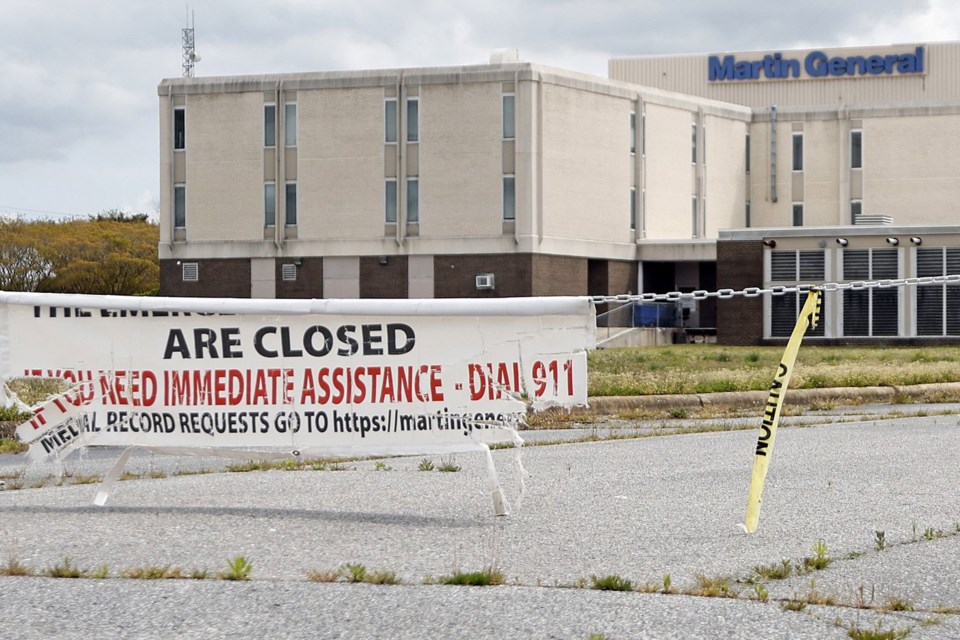WASHINGTON (AP) — Though patients don't rush through the doors of this emergency room anymore, an empty hospital in Williamston, North Carolina, offers an evocative illustration of why Republican Sen. Thom Tillis would buck his party leaders to vote down President Donald Trump's signature domestic policy package.
Martin General is one of a dozen hospitals that have closed in North Carolina over the last two decades. This is a problem that hospital systems and health experts warn may only worsen if the legislation passes with its $1 trillion cuts to the Medicaid program and new restrictions on enrollment in the coverage.
Tillis' home state showcases the financial impact that more Medicaid dollars can have on hospitals in rural and poor regions throughout the country. Tillis said in a floor speech on Sunday, explaining his vote, that the GOP bill will siphon billions of dollars from Medicaid recipients and the health system in his state.
“Republicans are about to make a mistake on health care and betraying a promise,” said Tillis, who has announced he will not seek re-election because of his opposition to the bill. Along with Republicans Susan Collins of Maine and Rand Paul of Kentucky, he joined all Democrats in voting against the bill.
Tillis later accused the president and his colleagues of not fully grasping the full impact of the bill: “We owe it to the states to do the work to understand how these proposals affect them. How hard is that? I did it.”
For Martin General Hospital in Williamston, North Carolina’s decision to expand Medicaid came just too late. The emergency room abruptly closed its doors in the eastern North Carolina county that's home to more than 20,000 people in August 2023. The closest hospital is now about a 30-minute drive away.
Then-Democratic Gov. Roy Cooper faulted the state's failure to expand the Medicaid program to more low-income adults sooner to prevent Martin General's closure.
North Carolina began offering Medicaid expansion to its residents in December. Today, more than 673,000 people are receiving this coverage.
Now, Tillis and other state officials are worried the Republican bill, which will limit how much Medicaid money is sent back to providers, threatens funds for hospitals in their state again. And it could trigger a state Medicaid law that would close down North Carolina's otherwise successful expansion of coverage unless state legislators make changes or locate funds.
The Medicaid dollars that Republicans seek to scale back in their bill have helped buttress the remaining rural hospitals across North Carolina, said Jay Ludlam, a deputy health secretary who leads North Carolina Medicaid.
“This has been a lifeline for our rural hospitals here in North Carolina and has helped provide and keep them open,” Ludlam said. “Rural hospitals play an integral role in communities both as a point of access for health care but also for the local economy because of the contributions that those hospital and hospital systems make to those communities.”
Republicans have responded to concerns with a provision that will provide $10 billion annually to rural hospitals for five years, or $50 billion in total.
Around the country, 200 hospitals have closed or shuttered emergency services in the last two decades, many of them in red states across the southeastern and midwestern U.S.
States that have declined to expand Medicaid coverage, the health insurance program for the poorest of Americans, have seen the closures accelerate. Tennessee, for example, has shed 500 beds since 2014, when a federal law first allowed states to expand Medicaid coverage to a greater share of low-income people. It’s one of 10 states that has not expanded Medicaid.
More than 300 hospitals could be at risk for closure if the Republicans' bill becomes law, an analysis by the Cecil G. Sheps Center at the University of North Carolina at Chapel Hill found last month. The center tracks rural hospital closures.
“Substantial cuts to Medicaid or Medicare payments could increase the number of unprofitable rural hospitals and elevate their risk of financial distress,” the analysis concluded. “In response, hospitals may be forced to reduce service lines, convert to a different type of health care facility, or close altogether.”
—
Associated Press writer Gary D. Robertson in Raleigh, North Carolina, contributed to this report.
Amanda Seitz, The Associated Press



